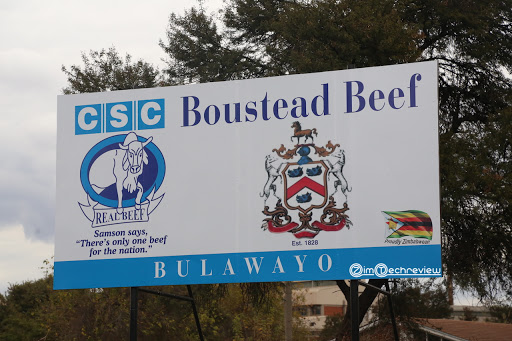Cold Storage Company sets re-opening date
THE Cold Storage Company (CSC) is set to re-open in April this year for the first time in 20 years when plant rehabilitation works at the firm’s headquarters in Bulawayo have been completed.
Overall plant upgrade, whose scope of work at the Bulawayo factory involves electrical engineering
works, replacement and installation of new spares, is now 85 percent complete.
The country’s largest meat processor and marketer was being revamped after the Government in
2019 signed a US$400 million Joint Venture Farming Concession Agreement with Boustead Beef
Zimbabwe, a United Kingdom-based investor.
Under the arrangement, Boustead Beef Zimbabwe will take over and manage CSC ranches for an
initial period of 25 years.
When Business Chronicle visited the plant on Monday, engineers were busy with rehabilitation
works.
Speaking during a tour of the plant, CSC-Boustead Beef consultant, Mr Reginald Shoko said they
would start operations on the first week of April.
“Overall, the refurbishment works at the plant are now 85 percent complete. We have a team of 25
engineers working in different sections including about 10 who were formerly with CSC and had
gone for greener pastures to countries such as Tanzania.
“We have managed to attract those skills back home and are here working to resuscitate the plant.
“This plant will be resuming operations early April, as you can see on the blood sump all the
material that was there has been removed.
“From the sump, we removed about 15 000 litres of blood that was mixed with water; and we are
installing new spares there,” he said.
During the tour, it was established that all the five air compressors in the refrigeration and control
room had been resuscitated.
The CSC plant uses two compressors at any given time while the three others will be on stand-by.
Condensers and other equipment in the refrigeration and control room section have also been
revamped and now functioning.
Mr Shoko said they were expecting another container loaded with condensers and other electrical
equipment from China in the next few weeks.
Revamping of the Bulawayo plant, he said, has been delayed by the Covid-19-induced national
lockdowns from that Asian country.
At its peak in the 1990s, the company that owns four abattoirs, used to employ 1 500 permanent
workers and about 700 casual employees, thereby making it one of the country’s biggest
employers.
It is hoped that as capacity utilisation and throughput improve after resumption of operations, the
plant will gradually increase the number of people employed.
“When opening a plant that is coming from rehabilitation or a new plant, from an engineering
point of view, you will have teething problems. . . so, what we are looking forward to is that by the
end of the year, we’ll be able to use this plant to maximum capacity.
“In the short to medium-term, we are planning to double output of this plant. From slaughtering
900 to about 2000 because technology now allows us to do that,” he said.
Mr Shoko said they would start by recruiting former CSC workers looking at their ability and
health.
“When Boustead Beef came in, there were 155 workers employed by CSC and all those still with
good health and capacity, we will take them while adding 50 to 100 more,” he said.
Prior to the Boustead Beef Zimbabwe deal, CSC faced some challenges, including working capital
constraints and stiff competition from private abattoirs.
Since its formation in 1937, the company enjoyed a virtual monopoly and the Government then
deregulated the industry in 1992 after the adoption of the Economic Structural Adjustment
Programme (ESAP), thereby opening up competition from private players.This plunged the
company into viability crisis following a sharp decline in cattle throughput.
Only a year after the deregulation of the industry, the company had lost 50 percent of its market
share to private players.
CSC had not been financially capacitated to withstand competition.
The company then largely survived on European Union (EU) exports since it had a US$15 million
revolving payment facility with the bloc.
CSC had an annual quota of 9 100 tonnes and used to earn at least US$45 million per year from the
EU export quota. The facility was, however, discontinued when the EU suspended imports in 2001
following an outbreak of foot-and-mouth disease.
Efforts to enter Asian markets did not materialise after some food safety standards concerns were
raised.
After the tour, CSC-Boustead Beef Zimbabwe managing director Mr Nick Havercroft said once
production peaks, they will be exporting to the region and some parts of Asia.
“We expect to start exporting in the second-half of the year. We will not be exporting to Europe, is
not profitable and people talk about 9 600 tonnes to the EU (European Union) now forget it. We
have got Lubumbashi in DRC (Democratic Republic of Congo), now there are saying they are
paying US$25 a kg, Angola they want our nyama (beef).
“Now we have got Malaysia, China and Qatar they want our beef,” he said.
Mr Havercroft said they would also tap into the Common Market for Eastern and Southern Africa
(Comesa) leveraging on duty-free entry for Zimbabwean products into the region as well as Sadc as
the country is a member of the two trading blocs. — The Chronicle











